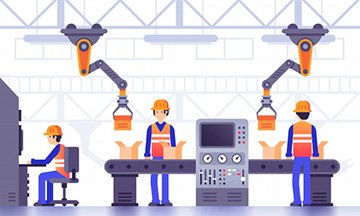Lean Manufacturing Course
| Date | Format | Duration | Fees | |
|---|---|---|---|---|
| 20 May - 31 May, 2024 | Live Online | 10 Days | $4495 | Register |
| 17 Jun - 21 Jun, 2024 | Live Online | 5 Days | $2250 | Register |
| 29 Jul - 31 Jul, 2024 | Live Online | 3 Days | $1750 | Register |
| 23 Sep - 27 Sep, 2024 | Live Online | 5 Days | $2250 | Register |
| 25 Nov - 29 Nov, 2024 | Live Online | 5 Days | $2250 | Register |
| 23 Dec - 27 Dec, 2024 | Live Online | 5 Days | $2250 | Register |
| Date | Venue | Duration | Fees | |
|---|---|---|---|---|
| 06 May - 17 May, 2024 | Amsterdam | 10 Days | $9850 | Register |
| 27 May - 31 May, 2024 | Dubai | 5 Days | $4750 | Register |
| 03 Jun - 07 Jun, 2024 | Dar Es Salam | 5 Days | $4950 | Register |
| 24 Jun - 28 Jun, 2024 | Dubai | 5 Days | $4750 | Register |
| 08 Jul - 12 Jul, 2024 | Dubai | 5 Days | $4750 | Register |
| 17 Jul - 19 Jul, 2024 | Kigali | 3 Days | $4100 | Register |
| 05 Aug - 09 Aug, 2024 | Dubai | 5 Days | $4750 | Register |
| 09 Sep - 13 Sep, 2024 | Kuala Lumpur | 5 Days | $5350 | Register |
| 23 Sep - 27 Sep, 2024 | Dubai | 5 Days | $4750 | Register |
| 21 Oct - 25 Oct, 2024 | Dubai | 5 Days | $4750 | Register |
| 11 Nov - 15 Nov, 2024 | Paris | 5 Days | $5695 | Register |
| 25 Nov - 29 Nov, 2024 | Dubai | 5 Days | $4750 | Register |
| 09 Dec - 13 Dec, 2024 | Houston | 5 Days | $5695 | Register |
| 16 Dec - 20 Dec, 2024 | Dubai | 5 Days | $4750 | Register |
Course Overview
Lean Manufacturing Course focusses on a systematic approach to improve a manufacturing system using lean manufacturing techniques. Most of the programs on Lean focus on Lean Principles but not on the application.
This course is very practical and has addressed challenges for a manufacturing practitioner who wants to start implementing Lean but does not know where to start from and how to implement Lean tools. The focus is on manufacturing case studies and examples, relevant tools, templates and application of the same. This course connects contemporary manufacturing practices with Lean Practices.
Why Lean Manufacturing Course? A lean manufacturing course is recommended for all manufacturing professionals irrespective of their current role. They just need to have a desire to improve processes and systems in their organisations using lean manufacturing methodology and lean tools. Lean is about creating more value for the customer by reducing waste in the plant and manufacturing system.
This Zoe training course will empower you with complete know-how of lean manufacturing tools and how they can be implemented to improve utilization, efficiency, productivity and process velocity.
The course will help you learn the skills needed to implement the methodology through lean tools and templates. By undertaking this course, you will get the required confidence to implement Lean Manufacturing Principles in your plant.
Course Objectives
The main objective of this training course is to build lean manufacturing skills among manufacturing professionals with—
- detailed knowledge and information about lean manufacturing tools and their impact on Plant Productivity and Product Cost
- the required skills to understand and/or audit lean implementation maturity in your plant across various departments in different processes to check for gaps and advice accordingly
- tools and techniques in the efforts to introduce lean practices within the organisation
- a sense of achievement for contributing to organisational scalability and hence growth, in turn, demonstrating potential, talent and encouraging additional opportunities for higher roles and responsibilities
- the necessary flexibility to adapt to change, without letting it affect the individual, team or organisational performance
- the skill and ability to deliver higher quality and establish reliability and credibility for work
Training Methodology
The training methodology of Zoe Talent Solutions offers a mix of theoretical and practical learning. Training content is delivered through lectures by an industry expert and a seasoned professional from the relevant domain. Trainee involvement is ensured through debates, classroom exercises, home assignments, competitions and other such activities encouraging group participation.
Trainees are also encouraged to share their work experiences related to lean manufacturing operations and these are discussed in detail, in relevance to the training content. Relevant examples and case studies are also discussed at length, and assignments in the classroom and from home are part of the learning process.
Organisational Benefits
With professionals attending this course, organisations will benefit in the following ways:
- Trained lean manufacturing practitioners to plan and implement lean manufacturing methodology and tools, practices within the organisation
- Periodical Lean Audits to check for opportunities for improvement and enhancements of lean implementation
- Application of advanced lean manufacturing concepts, tools and templates for making operations leaner
- Organisational progress and scalability as a result of leaner operations
- Lesser wastage and reduced operational costs
- Increased productivity of employees and greater turnaround time
- Better change management and greater dynamism
- Flexibility for change
- Minimise wastage
- Increase quality and reliability
- Reduce operational costs
- Boost staff productivity
- Reduce production cycle length
Personal Benefits
Professionals undertaking this course will derive the following benefits:
- In-depth knowledge and information about lean principles as applied in manufacturing
- Greater understanding and skill to work with advanced lean tools and concepts to make manufacturing operations leaner
- Increased skill, confidence and experience to closely audit processes and systems across the organisation
- Identify gaps and opportunities and implement manufacturing lean concepts and practices thus helping in career progression within and outside the organisation
- Greater confidence, knowledge and skill to train other professionals to adopt lean manufacturing practices in their work
- Greater flexibility to change with a positive impact on the individual, team and organisational performance
- Increased quality, productivity and reliability as a result of simpler and leaner manufacturing processes
Who Should Attend?
- Middle and Senior management of an organisation who need to understand the importance of lean manufacturing methodology implementation
- Manufacturing professionals who would like to learn and know more about lean manufacturing methodologies and lean tools
Course Outline
This course covers important areas to understand what Lean Manufacturing is all about and what it takes to implement Lean Manufacturing:
Module 1 – Introduction to Lean Manufacturing
- Continuous Improvement
- Improvement Philosophies and Methodologies
- Principles of Lean
- Thinking Revolution
- Getting Customer Focus – Understand Value
- Understand the High-Level Process Flow (SIPOC)
- Map the Value Stream
- Improve Flow – Remove non-value-added steps and wastes
- Create Pull – Manage by fact and reduce variation
- Seek Perfection
- Manufacturing Case Study
Module 2 – MUDA, MURI and MURA as per Lean (Manufacturing Examples)
- Understanding MUDA
- Defects
- Overproduction
- Waiting
- Non-utilised talent
- Transportation
- Inventory
- Motion
- Extra processing
- MURI
- MURA
Module 3 – 5S
- The 5S
- Preparation
- 1st Pillar – Sorting
- 2nd Pillar- Set in Order
- 3rd Pillar – Shine
- 4th Pillar – Standardize
- 5th Pillar – Sustain
- 5S Tools
- Red Tagging
- Signs
- Painting
- Preventive
- Promotion
- Poka-Yoke
- Inspection
- Statistical Quality Control
- Zero Defects
- Design Methodology
- Examples
- Standard Operations
- Jidoka
Module 4 – TPM
- Equipment Efficiency – Performance
- Equipment Efficiency – Motion Study
- Motion Study
- Value Analysis
- 5W and 2H Analysis
- 5 Why Analysis
- Worker – Machine Diagram
- Machine – Worker Ratio
- Machine – Machine Diagram
- Equipment Efficiency – Availability, Performance and Maintenance
- Equipment Maintenance – Preventive
- Systematic Preventive Maintenance
- Conditional Preventive Maintenance /Predictive Maintenance
- Equipment Maintenance – Corrective
- Urgent Repairs
- Schedule Corrective
- Autonomous Maintenance
- Reliability Centred Maintenance
- Maintenance Tools
- FMEA
- MTBF
- MTTR
- One-Piece Flow
- Multi-functional workers
- Kanban
- Levelling Production
- SMED
- What is SMED?
- Set-Up Time
- Set-Up Process
- 3 Steps SMED Process
- 1st, 2nd and 3rd Stage Set-Up Tools
- Zero Changeover
- Benefits
- Visual Control
- Workforce Optimization
- JUST IN TIME
Module 5 – Measuring and Prioritizing Improvements
- Radar Chart – Measuring Improvements in Twenty Areas
- OEE (Overall Equipment Efficiency-Availability, Performance, Quality)
- Available Work Time
- Load Time
- Six Types of Equipment Losses
Module 6 – Improvement of Material Flow by Right Plant Layouts
- Understanding Different Types of Manufacturing Industries
- Understanding Different Types of Layouts
- Four Signs and Reasons for a Need to Change the Layout
- Six-Step Process to a Good Layout
- Eight Factors Consideration for a Good Layout
- Equipment Losses
- One-Piece Flow
- Transfer Batch and Production Batch
Module 7 – Material Flow and Design of Cellular Layouts
- Material Flow in Assembly Lines and Mass Production
- Cell Layout Justification
- Basic Cell Design Nomenclature
- TAKT Time
- Cycle Time
- Cell Design Methodology
- Cell Design Tools
- Line Balancing
- Group Technology
- Time Study
Module 8 – Keys to Workplace Improvement
- Cleaning and Organizing
- Rationalizing the System
- Improvement Team Activities
- Reducing Inventory
- Quick Changeover Technology
- Method Improvement (Motion Study)
- Zero Monitor Manufacturing
- Coupled Manufacturing
- Maintaining Equipment
- Time Control and Commitment
- Quality Assurance System
- Developing Your Suppliers
- Eliminating Waste
- Empowering Workers to Make Improvements
- Cross-Training
- Production Scheduling
- Efficiency Control
- Using Information System
- Conserving Energy and Materials
- Leading Technology











